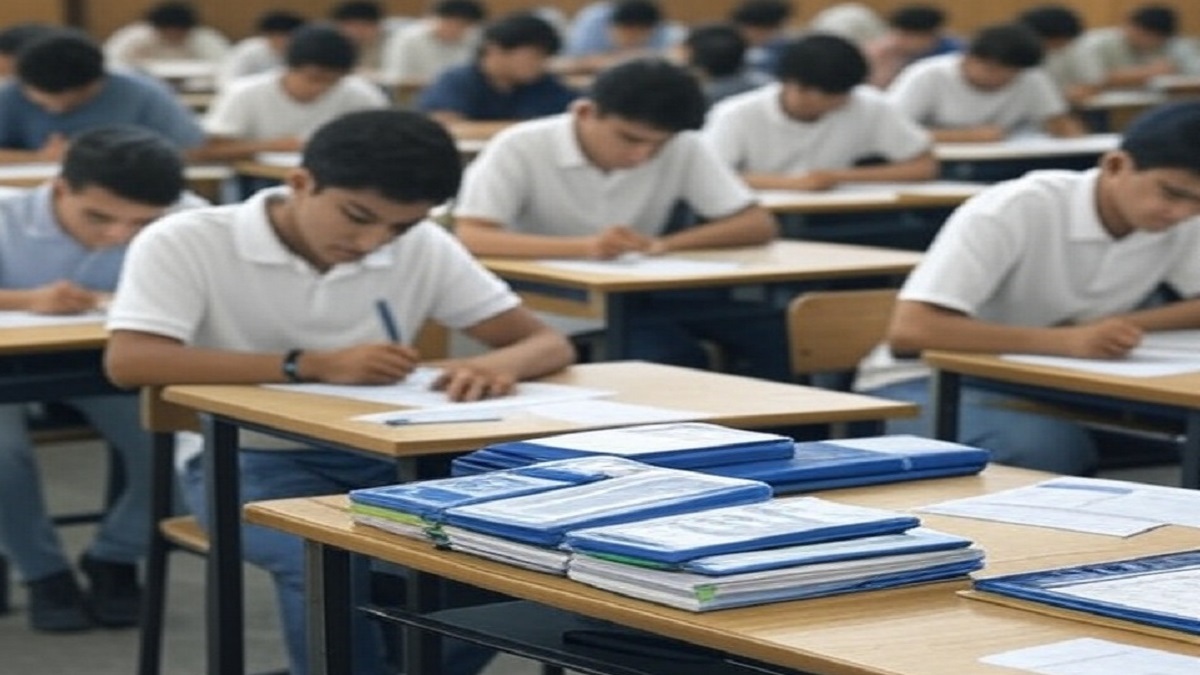CBSE Class 10, 12 board exam calendar has shifted from Pre-Covid schedule to tentative multi-window formats, here’s how 2019–2026 shaped policy.
Central Board of Secondary Education (CBSE) has released tentative date sheet for Classes 10 and 12 board examinations for 2026, reflecting a larger shift in the way India’s biggest school board manages its exam calendar. What was once a predictable annual timetable has, over the past five years, turned into a flexible, sometimes prolonged schedule, shaped by Covid-19 disruptions and ongoing policy changes under National Education Policy.
Pre-Covid consistency
Till 2019, CBSE’s exam calendar used to be steady. Class 10 and 12 board exams typically began in mid-February or early March and ended by early April. Exam dates were announced in December or January, giving students and schools sufficient preparation time. Core subjects such as English, Science, and Math were spaced out, with sufficient gaps.
Pandemic disruptions
The Covid-19 outbreak in 2020 brought this predictability to a halt, with exams of some subjects done, later called off. Class 10 exams in 2021 were cancelled completely, while Class 12 exams were postponed and then scrapped after weeks of uncertainty.

CBSE came up with a two-term exam format in the year 2022, splitting board syllabus into Term 1 and Term 2. Term 2 was conducted between April and June. However this was a temporary experiment to ensure flexibility in uncertain conditions.
Return to single Board Exam, with changes
In the post Covid era, 2023 and 2024, CBSE reverted to a single annual board exam cycle. However, exams started earlier, from mid-February, and stretched into April. The date sheets also came with fewer gaps between subjects, generating concerns among students and parents about stress and preparation time.
CBSE 2026 Board Exam Tentative schedules and road ahead
For 2026, CBSE has first time released a tentative date sheet, with exams listed across multiple phases from February to July. This approach reflects the upcoming shift towards biannual Class 10 boards under NEP reforms.
Officials argue that multiple opportunities will reduce high stakes pressure, but teachers and principals worry about logistics and evaluation timelines.
Comparative calendar
| Year | Class 10 (start–end) | Class 12 (start–end) | Note |
|---|---|---|---|
| 2019 | Feb 21 – Mar 29 | Feb 15 – Apr 3 | Predictable, firm schedule |
| 2021 | Cancelled | Cancelled | Results via alternate assessment |
| 2022 | Apr 26 – May 24 (Term 2) | Apr 26 – Jun 15 (Term 2) | Two-term model |
| 2024 | Mid February- March end | Mid February- Early April | Single window, tighter gaps |
| 2025 | Feb 15 – March 18 | Feb 15 – Apr 4 | Single window, tighter gaps |
| 2026 | Feb – June (phased)- (tentative) | Feb – April (tentative) | Tentative, multi-window approach |
Principals and teachers react
CBSE school heads are of the view that shift is understandable but needs careful planning. “From a policy angle, flexibility makes sense, but on the ground it means rescheduling staff duties and reworking academic calendars almost every year,” said Maitreyi Borthakur, Principal of a CBSE school in Ghaziabad.
In the Accountancy subject, the CBSE Board has decided to do away with the answer books wherein tables were provided for the subject of Accountancy.
“Biannual windows may give students more chances, but they also double the workload for schools and create challenges in secure handling of answer scripts,” noted Daya Varughese, Principal of a Kendriya Vidyalaya in Kerala.
Read More:
Follow Shiksha.com for latest education news in detail on Exam Results, Dates, Admit Cards, & Schedules, Colleges & Universities news related to Admissions & Courses, Board exams, Scholarships, Careers, Education Events, New education policies & Regulations.
To get in touch with Shiksha news team, please write to us at news@shiksha.com

Abhay Anand is an experienced education journalist with over 15 years in print and digital media. Currently serving as Manager- Editorial at Shiksha.com, he specializes in higher education policy, student mobility,
Read Full Bio
Given below is the exam structure of CBSE class 10 social science 2025. Students can refer to it to plan their preparation:
Section
No. of questions
Type of questions
Marks per question
Total weightage (marks)
A
20
MCQs
1
20
B
4
Very short answer type questions
2
8
C
5
Short answer type questions
3
15
D
4
Long answer type questions
5
20
E
3
Case based questions
4
12
F
1
Map based
5
5
Total
37
80